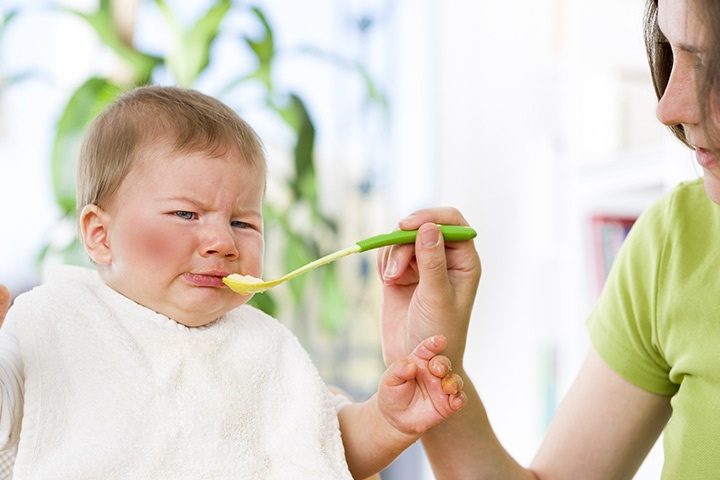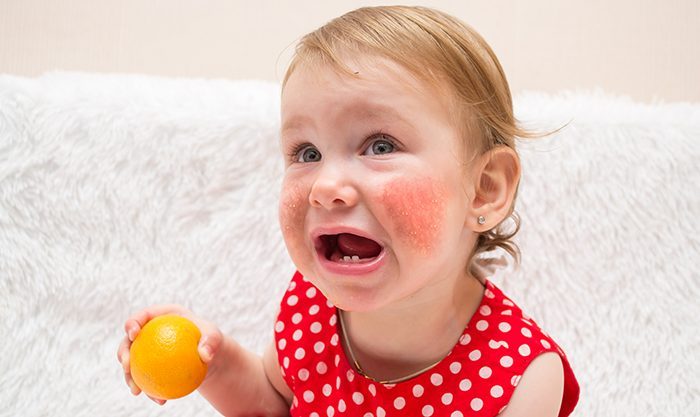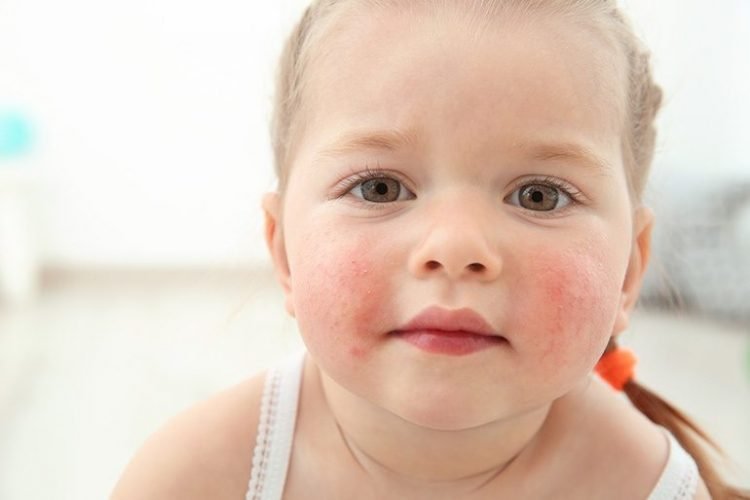Food allergies in babies are more common than you think and while starting your little one on solid foods, you have to be careful that it does not cause an allergy in the baby. But don’t worry, not all babies are prone to food allergies, yet it is important to know the kinds of foods that might trigger an allergy.
Why Does A Food Allergy Occur?

Food allergies are your baby’s body’s immune system mistaking certain food to be a pathogen. It is because of this faulty response of the immune system that disease like symptoms appear on the body of the baby.
What Causes Food Allergies In Babies?

Food allergies can be caused because of genetic or environmental factors, or a combination of both. When the food is ingested, it mixes in with the immune system cells and incorrectly detected food makes the immune system release antibodies. This creates visible external symptoms of allergy.
What Are The High Allergy Foods For Babies?
The most common food that babies are allergic to are eggs, fish, shellfish, wheat, soy, milk (from animals) , nuts like hazelnut or walnut and even mustard or sesame seeds can be potential allergens in babies.
What are the Symptoms of Food Allergy
A baby with a food allergy might display the following symptoms:
Skin rash:
Red to pink rashes over their body. This rash may extend to entire body like back, legs, hands and even face. These rashes are itchy and irritable.
Swelling:
Swelling can be seen in different parts of the body, but especially face like on Lips, nose, eyelids, and tongue.
Runny nose:
A clear fluid may ooze out of the nose of the baby.
Abdominal pain:
Allergy may cause sharp stomach ache and stomach cramps in the entire abdominal area.
Vomiting and diarrhea:
Nausea accompanied by vomiting and loose motions is another symptom.
Allergies do not cause fever or constipation. The symptoms may manifest instantly or even after four-five hours.
One of the high-intensity symptoms in babies is Anaphylactic shock which causes the respiratory tract to get tightened and neck muscles get swollen putting pressure on the windpipe. Blood pressure could instantly drop and heart rate would increase.
How Is Food Allergy In Babies Treated?

Food allergies cannot be cured but relief could be provided for the symptoms. In case of anaphylactic shock, consult a doctor immediately.
Antihistamine medication: Doctors recommend oral antihistamine medication for allergies. The baby would also be prescribed an epinephrine auto-injector in case of anaphylactic shock since even a parent could administer it.
Changes in diet: The only way to manage food allergies is to avoid the food causing allergies in babies.

